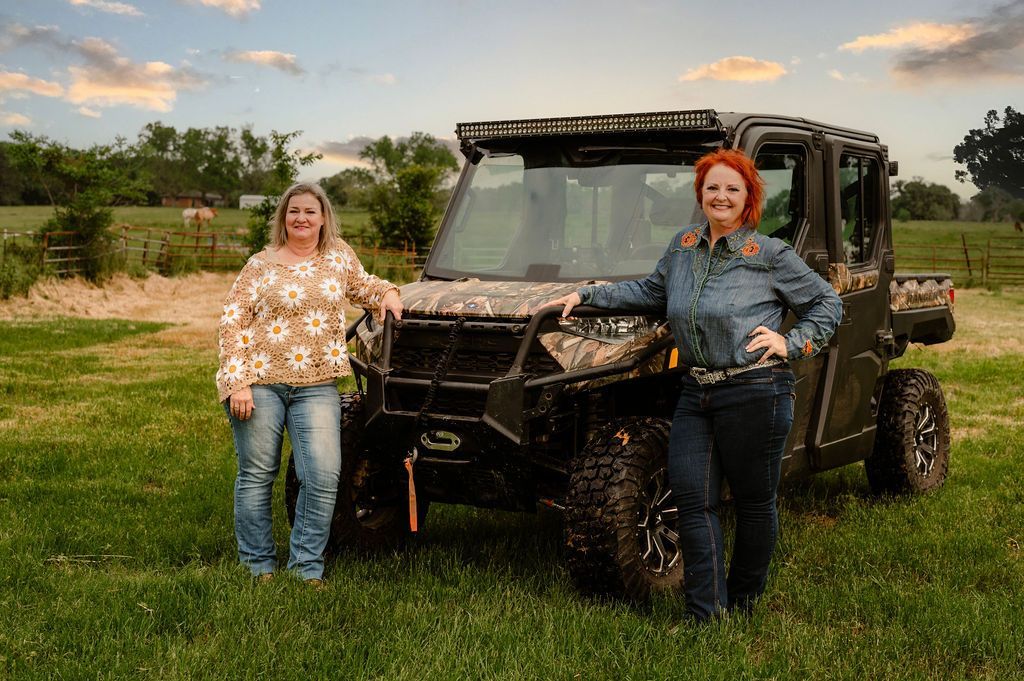LAND, FARM & RANCH
"Buy land, they're not making it anymore…"
-Mark Twain
Decades ago, the majority of rural properties were developed and built by full-time farm and ranch families, who had extensive agricultural experience and lived on the land they worked. Today, the typical buyer may have little to no farming or ranching experience. In fact, they may not even come from a rural background.
If this sounds like you, then you’ll want to take extra care when deciding to invest in an agricultural property. Here are a few key questions to ask yourself before taking the plunge.
things to Consider about your land buying representation
Big city or Urban agents typically sell smaller lots in higher-density neighborhoods, therefore they don’t have experience valuing acreage.One thing urban agents don’t understand about rural properties is that sometimes, it’s about what is NOT here.
Big city agents commonly know how to value conveniences and amenities for central locations. They practically assume that the value of a location is synonymous with "how close it is" to conveniences. To the contrary for our country living dwellers, sometimes the opposite is true: a property is more valuable the more secluded it is. Many people move to rural settings to get more elbow room from their neighbors. Rural agents can appreciate the value of less traffic, less noise, and less people, while seeing more wildlife, more nature, and more stars.
YOU NEED A REALTOR WHO UNDERSTANDS LAND
As Fellow Ranchers we understand that all acreage properties are different and very unique in nature. These properties require more attention to the details more than a run of the mill real estate transaction. With fluctuation in acreage pricing and the vast combinations of features an acreage property can have. We understand unique features and how to prices them accordingly. No two acreage proprieties are the same, these properties have 100s of unique features form fencing, soil, ponds, wet weather creeks, flood zone,, hay production, AG exemption, minerals, irrigation, pole barn, horse wire fending, cattle holding pens, water features to name a few. With vast combinations you need an agent with experience and knowledge of the industry to price them correctly.
FINDING A LAND AGENT TO HELP YOU IN YOUR SEARCH
Look for a Realtor who has the ALC accreditation (Accredited Land Consultant), behind their name, they are the Elite Land Agents. They are the specialized in land sales and knowledgeable in all aspects of land. Our Team is lucky to to have one of those Elite Agents on our Team. Valerie Bahm, is ALC and the Land & Water Teams Founder, we also have Connie Meadors who is in the process of earning her ALC.
To find others check with Realtor Land Institute. www.rliland.com
REASONS TO BUY LAND
RECREATION
Recreation, When you live in the city, sometimes the most fun thing you can do is get out in the country. Whether your preferred means of country recreation is hunting, fishing, hiking, or exploring the land on an ATV, having a spot to call your own makes it easier.
FARMING & RANCHING
If you want to try your hand at farming or ranching, land is foundational to your endeavor. On the other hand, you might simply want a bigger vegetable garden than your cityscape will allow. Or you might dream of opening your own winery. You don’t have to own cattle or plant wheat to start an agribusiness. Investment Land may be the investment you are looking for. Just like the stock market, land can be a valuable asset. Country Home People decide to build homes on rural acreage for a variety of reasons. It could serve as a second home or a retreat. It might be your retirement dream. Or you may want a place for the family to gather where you or your kids can roam free, investigate nature, and (perhaps unintentionally) learn something.
If farming and ranching is your dream, these are the questions you need to ask:
Will your farm be a business, or a hobby?
This is an important question for a couple reasons. First, the answer can seriously impact your tax burden. A working farm enjoys certain tax deductions so long as certain conditions are met, including maintaining records of transactions, revenues, and expenditures that increase the value of your property. If you don’t intend to seek a profit or document your transactions, then the IRS may revoke these deductions. Second, running a profitable family farm or ranch is hard work. In today’s agricultural economy, your chances of competing successfully with commercial farm operations are slim. If your goal in purchasing a farm is to turn a profit, then you’ll need to make sure you have the knowledge, the skill, and the time to adequately invest in your property.
How many acres is enough?
The way you intend to use the land will determine how much you need. If you want to build a country home, five to ten acres may be enough. If, however, you want to raise cattle, you’ll probably want more.
How accessible is the property?
Once you buy the land, how will you get to it? Is there an entry point from a public road? If there is no public road, then you may not have the legal right to access the land, even if a private road exists
Is the topography a right match?
Is it wooded or cleared? Is there waterfront? Does it have Live Water running though the property like a stream or wet weather creek. Is there ponds, or lakes on the property? Is it flat or are there multiple levels of terrain to navigate? Rolling Hills make for great views, but they can limit the farming area.
How much infrastructure already exists?
Farmland needs to be worked extensively to produce results, and this will be a lot easier if your property is already equipped with the infrastructure necessary to support your farm operation. Is there a barn, grain silo, or other farm structures on the property? Are there irrigation systems in place, and are those systems appropriate for your planned crops? Does the farm or ranch come with any fencing? The answers to these questions will give you more insight on the true value of the property beyond the sale price.
Does the land suit your farming needs or goals?
Not every piece of farmland is suitable for every purpose. When purchasing land, it’s important to know what crops or animals you intend to raise there, then evaluate a property based on that information. If you want to grow fruits or vegetables, for instance, you'll want to know that you have solid ground with access to full sunlight for production of your crops. If at all possible, be sure to visit the property at different times to check slopes for stability, evaluate sunlight conditions, etc. You can also obtain information online to evaluate soil conditions and potential yields.
What amenities currently exist?
It’s rare for rural property to be completely raw (untouched by people or machines). As you look at various pieces of land for sale, take note of the features on that land. Are there structures already built? Does it have a water well? If so, is the well still producing, and working? Find out what utilities already service the area before you assume there will be electricity, water, or internet.

It's important to hire a Realtor who understands
Land Real Estate.
Pricing of land in our market
From the topography to the easements, no two acreage properties are exactly the same. As you can imagine, the price range is broad depending whether it is an individual lot for a homestead, or a large ranch. Land starts around $8,000-10,000 an acre for large-acreage in our market area, ranch without many improvements ranging to around $20,000-$30,000 per acre for a highly improved ranch with tanks, good roads, and evidence of great wildlife, etc. Acreage with live water goes for even more. Nice Century Oak and Land with Lake and live water sells for much more per acre (people love topography and mature oaks), with less large-acre ranches available. 20+ acres can easily run $15,000-$25,000 per acre, while purchasing a single acre for a homestead in a great school district like Kaufman, Martins Mills, Canton ISD starts around $75,000-$100,000. If you want to make it super simple, the range can be $8000/acre to $100,0000/acre depending on the number of acres purchased, location, and improvements.If you want to sell or buy a property for the highest possible price, it's not as simple as calculating a fixed price per acre and then multiplying it by the number of acres With that being said, It takes a Realtor who understates land to take the steps to property value that makes land unique. There's a lot of wisdom that goes into this, and the only way to learn is the old-fashioned way:
EXPERIENCE

We here at the Land and Water team have boots on the ground, knowledge and experience in the area you are searching in.
Our Team is here to help you with any questions you may have or aid you in finding your prefect piece of the TEXAS DREAM.
Ready to take the first step in buying your piece of land?
Get in touch with us today and we'll work our magic to match you with your perfect property.


